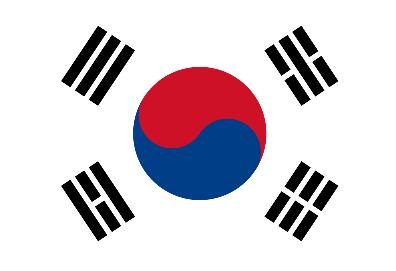Freedom of Expression and Civil Liberties in South Korea
'Free Lee Suk-ki!': An International Declaration Petition calling for the realization of Freedom of Expression in the Republic of Korea.

6 out of 11 former Presidents of South Korea raised and plotted a rebellion.
There were two types of rebellions in Korean modern history.
The first type is a ‘successful coup d’etat’.
The military men of Park Jung-Hee (tenure: 1961~1979), Chun Du H-hwan (tenure: 1980~1987) and Noh Tae-woo (tenure: 1987~1992) staged a military coup in 1961 and 1980, respectively, to take power.
Rhee Syng-Man, the first president of South Korea, (tenure: 1948~1960) was accused of rebellion after his removal. He stepped down from his long dictatorship by the April 19 Revolution, born out of which is the students’ pro-democracy movements.
The second type is the fabricated rebellion created and manipulated by the dictators. The dictators who took power by military coup utilized the rebellion events to suppress their political opponents. Kim Dae-Jung (tenure: 1997~2002), when he was a politician in the opposition party, had been sentenced to death under conspiracy charges by the military regime.
Lee Myung-Bak (tenure: 2002~2007) had been convicted of rebellion in his college years, due to his participation in a demonstration opposing the military dictatorship when he was a college student.
Another ‘Rebellion’ charge without violence attempted to cover up the scandal when the National Intelligence Service (NIS) intervened in the 2012 Presidential Election.
In September 2013, Lee Suk-Ki, a member of the National Assembly, and 6 members of the Unified Progressive Party were accused of rebellion conspiracy, inciting rebellion and violating the National Security Law.
At the time, struggles of the people and the resistance of the opposition party and people against President Park Geun-Hye reached its peak around the NIS scandal, regarding the NIS illegally interfering in the Presidential Election. The recordings taken from Lee Suk-Ki’s lecture to the party members was the only evidence.
More than half of the audience were women. Before and after the speech, there was not a single action relating to rebellion and no violent action planned by the participants. The public media, which was critical of the government believed that the government, which was losing its ground, was pushed into a corner due to the presidential election scandal and fabricated the charge, just like many former dictators in history.
In January 2015, the Supreme Court dropped the rebellion conspiracy charge, as not guilty but it still found them guilty of inciting rebellion and/or violating the National Security Law, sentencing them to 9 years of imprisonment for the agitation of rebellion and the violation of National Security Law.
The National Security Law and inciting rebellion charge are the legacy of the Cold War era and the dictatorship.
The National Security Law, which was temporarily established in 1948 to cope with the military risks of North Korea, is legislation designed to criminally accuse dissenters who have a different political opinions.
In particular, the Korean former dictators of Korea had frequently used it together with the clause on incitement of rebellion to make political criticisms a crime against the state. It is clear that the National Security Law is the key obstacle in pursuing the realization of protected rights specified in the International Covenants on Human Rights. A number of non-governmental organizations and foreign governmental agencies of other countries, as well as the United Nations Human Rights Council, have insisted that the Korean government should abolish or amend the law. The incitement of rebellion agitation in the criminal law is the twin act of the National Security Law in its functional terms of the violation of people’s freedom of expression. The legal experts and human rights groups in Korea have expressed their concern that the suppression of political opponents will be more devastating with the guilty verdict of the accused of incitement of rebellion.
Recently in Korea, the freedom of expression is being severely hindered. Criticisms toward the government, including the creative activities of artists, and internet activities are being criminally prosecuted. Especially Lee Suk-ki’s case, who has been sentenced to 9 years of imprisonment due to his 90 minute lecture.
We have witnessed the development of democracy and the growth of human rights in Korea, which were hard earned by the efforts of the people of Korea. And now, at this time, we feel very disappointed and concerned, and accordingly, we ask the governmen the following:
- Abolish the National Security Law and guarantee freedom of expression!
- Free Lee Suk-ki and Release the 66 other UPP prisoners immediately!
- Stop all sorts of continuing investigations and detentions regarding this case immediately!
- Observe and adhere to all of the articles in the International Covenant on Human Rights!
Date: ____________________________________
Name: of declarer_____________________________________
Company or Party/PositionAffiliation: _________________________________
Signature: _________________________________

